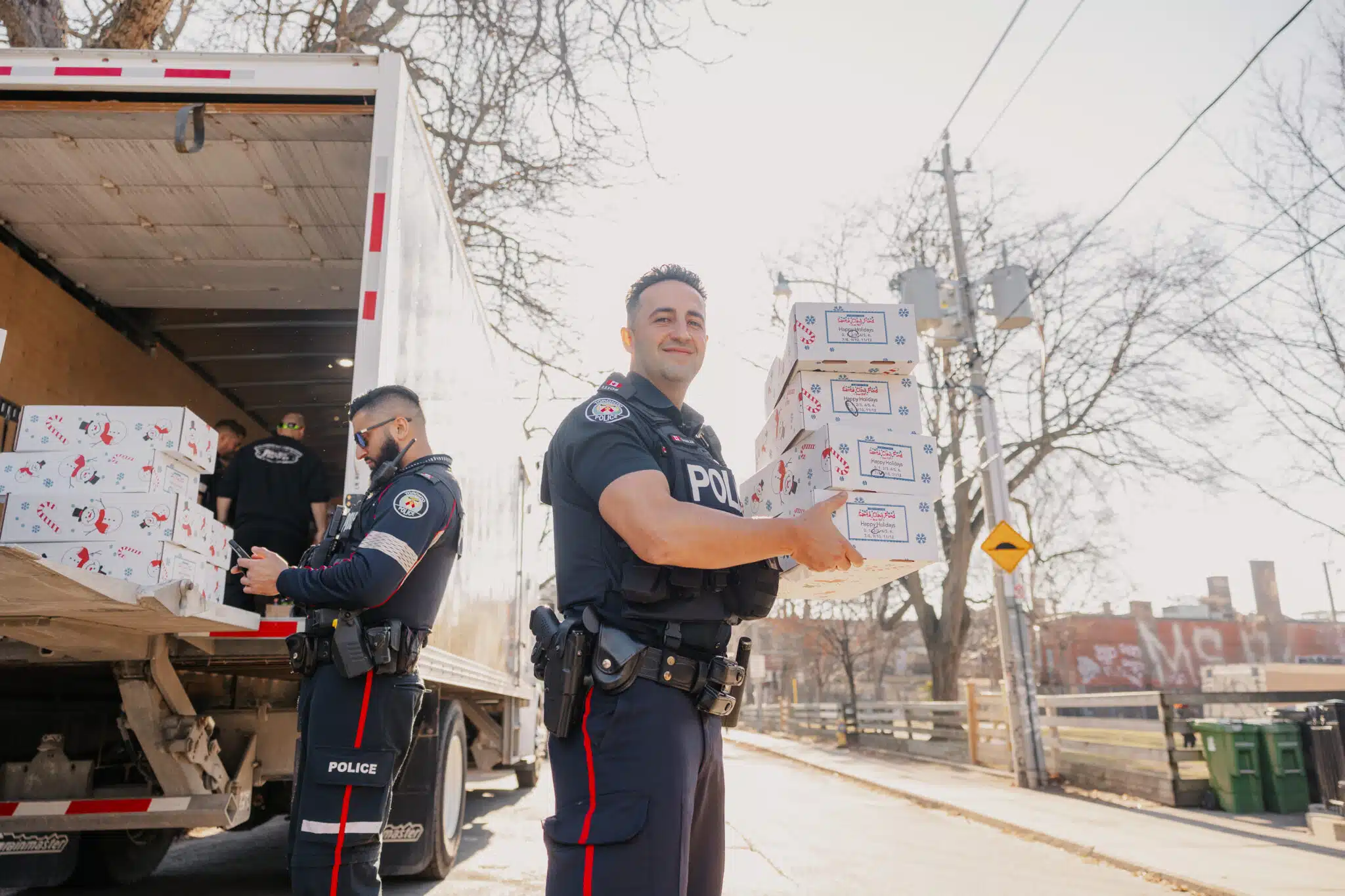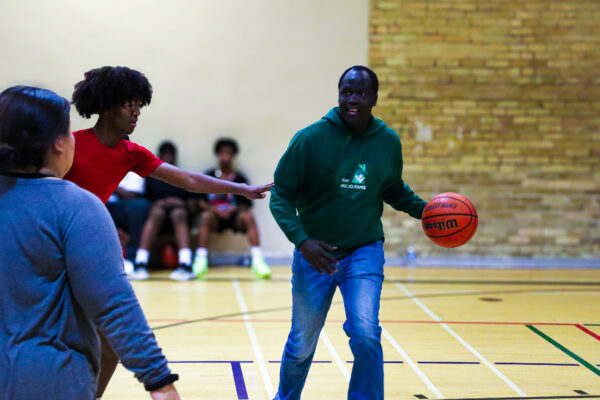
Detective Constable Mustafa Popalzai is a driving force behind Project Hope, a grassroots initiative changing lives for thousands of newcomers. © Mustafa Popalzai
When Mustafa Popalzai arrived in Canada as a 14-year-old refugee from Afghanistan, he had little more than hope. Today, the Toronto police Detective Constable is a driving force behind a grassroots initiative to change lives for thousands of newcomers, but also help heal the mistrust many carry from painful encounters with police in their homelands.
By Levon Sevunts in Ottawa, Canada
Born in Kabul in 1986, Popalzai fled with his family to Pakistan in 1988 during the Soviet occupation of Afghanistan.
“I was a refugee since I was two,” he recalls. “We had to flee with nothing.”
Life in Pakistan was difficult. His father, an artist, faced threats from the Taliban for his work, and the family endured years of hardship before finally moving to Canada in 2000.
Mustafa’s journey from a refugee to a police officer was anything but straightforward. After settling in Ottawa with his family, he pursued higher education at Carleton University, eventually earning a master’s degree in legal studies. But his distrust of police lingered all throughout his formative years.
“While growing up in Peshawar, Pakistan, I witnessed police assault my father and ask for bribes,” he says. “Those negative perceptions of the police stayed with me and, unfortunately, even after my arrival in Canada, I did not trust the uniform for over a decade.”
But a civilian job with the Ottawa Police Service changed his perspective.
“I realized policing here is different. And more importantly, I realized how much I can actually give back to the community and help other people who are like me.”
– Mustafa Popalzai
In 2014, Mustafa joined the Toronto Police Service as a constable. Over the years, he worked in patrol, the homicide, major crime, guns and gangs, and intelligence units. But it was his time as a neighbourhood officer in Regent Park that would shape his most impactful work.
In August 2021, as the Taliban forces swept through Afghanistan, Mustafa and his partner, Constable Farzad Ghotbi — also a former refugee — watched in horror as images of desperate Afghans clinging to planes flooded social media. “It took me back 25 years,” Mustafa says. “We knew we had to do something.”
They drove to a hotel near Toronto Pearson Airport where newly arrived Afghan refugees were being housed.
“We saw kids running barefoot, terrified of us in uniform,” he recalls. “But when I spoke to them in Dari and Pashto, they came closer. That moment changed everything.”
What began as an impromptu visit turned into a full-scale donation drive. Using their social media networks, Mustafa and Farzad rallied fellow officers and community members to donate clothes, diapers, and baby formula.
“We filled a truck. Within 10 minutes, it was empty,” he says. “People were scrambling to get a piece of clothing, showing just how desperate they had become. I could totally see myself in their shoes and understood the level of their vulnerability.”
The initiative grew rapidly. Over the next months, they organized dozens of drives, secured support from sponsors like Canadian Tire and the Toronto Star’s Santa Claus Fund, and began hosting information sessions for newcomers. They named the initiative “Project Hope” — a nod to the one thing every refugee carries with them.
“Hope is all we had when we came to Canada,” Mustafa says. “That’s what every newcomer has.”

Since 2021, Project Hope has delivered over $1.5 million in in-kind donations to support newcomers and refugees — like this young girl from Syria at a holiday toy drop-off. © Mustafa Popalzai
Over the years, Project Hope has supported refugees and newcomers from around the world: Afghanistan, Syria, Ukraine, Gaza, several African countries, India and beyond. The team delivered essentials like beds, fridges, and clothing, often on their own time and dime.
“We’ve rented trucks with our own money, bought pillows and mattresses, and delivered them ourselves,” he says.
But the project goes beyond material aid. Mustafa and his team offer mentorship, legal education, which highlights the role of the police in Canada, and cultural orientation.
“Many newcomers don’t trust police. They’re afraid to report crimes, even when they’re victims,” he explains. “We teach them their rights, how the justice system works, and that police are here to help.”
One story stands out for Mustafa. A family of seven, including four children, had just moved into an unfurnished apartment in the middle of winter.
“They were sleeping in jackets on a hardwood floor,” Mustafa recalls. “We brought them mattresses, blankets, and food. The kids hugged us. That moment — I’ll never forget it.”
Project Hope has also helped prevent youth from joining gangs and supported families facing domestic violence.
“We’ve intervened in cases where kids were being recruited by gangs or where parents didn’t understand Canadian laws. It’s about proactive policing, building trust before there’s a crisis.”
– Mustafa Popalzai
The impact has been profound. Hundreds of volunteers, police officers, and community members have joined the effort. Durham Regional Police have replicated the model, and the project has been recognized by Members of Parliament and Senators.
Now, Mustafa dreams of scaling Project Hope into a national program.
“Canada is built on newcomers,” he says. “We need a structured, official program in every city — one that connects police with refugee and newcomer communities.”
He envisions a “Newcomer Assistance Program” embedded in police services across the country, with trained officers regularly visiting settlement centres, offering support, and building relationships.
“Imagine how much crime we could prevent, how many families we could support, how many lives we could change.”
For Mustafa, it’s always been personal.
“I never had a police officer offer me an information session, provide guidance and mentorship, bring me a toy, or lead a sports program just to connect and break down barriers,” he says. “Now, I want to be that person for someone else.”





